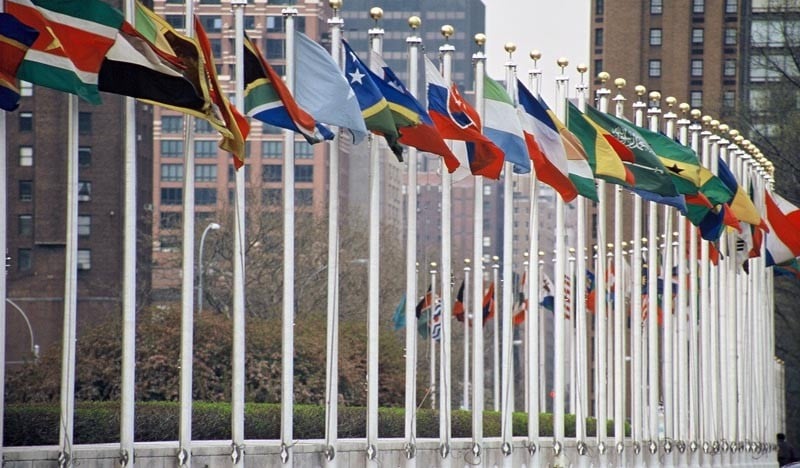
Pakistan’s experience with international treaties and conventions on torture and extrajudicial killings

To what extent does Pakistan abide by the international treaties and covenants and what is the reaction of the international community if it doesn’t? It is worth finding out what kind of treatment does it receive for not following international laws on torture.
To begin with, international laws on torture say the dignity of a human being should be respected. "Dignity of every individual needs to be upheld even if he is suspected of crime," says Ahmer Bilal Soofi, an expert on international laws. "He still continues to deserve a respectful treatment which should not be below minimum standards of dignity even if he is in prison or custody," Soofi explains.
"This inherent obligation of one individual to treat another individual with dignity has been codified not only in international law but also reflected in all the constitutions as part of package of fundamental rights," he adds.
In this context, Convention against Torture and Other Cruel, Inhuman or Degrading Treatment or Punishment (CAT) was adopted. "Pakistan ratified it in 2010," he informs.
Under the Convention, "torture is disallowed under Article 1 of the convention which allows for "pain or suffering arising only from inherent in or incidental to lawful sanctions," he quotes.
"In other words, investigation can be carried out through techniques allowed under the Convention. Pakistan has reflected the said Convention in Regulation 15 of the Actions (in Aid of Civil Power) Regulation, 2011 (AACPR). 15. Prohibition on Torture. - No person interned under this Regulation, shall be subjected to inhuman or degrading treatment or torture."
Soofi says Pakistan has an obligation to follow and implement the laws in its territories. "In this regard, Pakistan also has an obligation to provide for an update to the UN about the measures it has taken to implement the Convention. Ministry of Law or Ministry of Foreign Affairs organise the process to submit Pakistan Compliance report under UNCAT."
And what does the government do to submit compliance report to the UN? "The treaty implementation cells were notified by me as a caretaker Federal Law Minister in 2013 and the present government has strengthened them and made use of them for collecting data and information, to examine cases of torture and to prepare reports accordingly," he says.
"As State, the government and the executive arms of the State including the police and army cannot approve of torture during any kind of custody and any individual officer held responsible for same will be liable under the disciplinary framework of the relevant force," he adds.
The prohibition of torture and extrajudicial killing is part of international law applied to every state in the world. "Over and above Pakistan’s treaty obligations, the prohibition of torture and extrajudicial killing (arbitrary deprivation of the right to life) is part of customary international law," says Adnan Sattar, a senior analyst and an expert on international laws.
"The 2010 convention obligates us to criminalise all acts of torture (Article 4), and to initiate impartial investigation into all cases of alleged torture (Article 12)," Sattar informs.
Pakistan has been looking for ways to escape international obligations against torture. "Interestingly, these were two of several provisions which Pakistan had entered reservations about upon ratification. The reservations were withdrawn to gain preferential status with the EU. This is as an example of trade imperatives serving as an indirect means of human rights enforcement," he says.
"The prohibition of torture and the right not to be unlawfully killed are enshrined in the Covenant on Civil and Political Rights. These rights are non-derogable. International law permits the use of lethal force where absolutely necessary in self-defence," he explains.
He points out a link between extrajudicial killings and enforced disappearances. "Extrajudicial killings often go together with enforced disappearances. There is an International Convention for the Protection of All Persons from Enforced Disappearance, which Pakistan is yet to sign."
Sattar points out that the UN human rights treaty system contains optional individual complaints mechanisms. "Since Pakistan has not signed up to the relevant Optional Protocols, the only obvious means of enforcement is naming and shaming. Crucially, however, international law has been applied creatively in domestic courts in many jurisdictions to vindicate human rights. Pakistan is yet to catch up with the trend."
Also, the continuation of the GSP plus status is dependent on Pakistan’s compliance with the Convention against Torture and several other human rights treatise. "Since January 2014, Pakistan is a beneficiary of European Union’s Generalised System of Preferences (GSP) plus status. The GSP plus status allows Pakistani exports preferential access to the European markets. The continuation of the GSP plus status is dependent on Pakistan’s compliance with the convention and other treatise," says Saroop Ijaz, Pakistan Researcher for Human Rights Watch.
"Pakistan is falling abysmally at complying with the Convention against Torture," he points out.
"Pakistan should ensure that security forces follow the United Nations Basic Principles on the Use of Force and Firearms by Law Enforcement Officials. They provide that all security forces use nonviolent means as far as possible before resorting to the use of force," he says, adding, "Whenever the lawful use of force is unavoidable, officials should use restraint and act in proportion to the seriousness of the offense. Lethal force may only be used when strictly unavoidable to protect life."